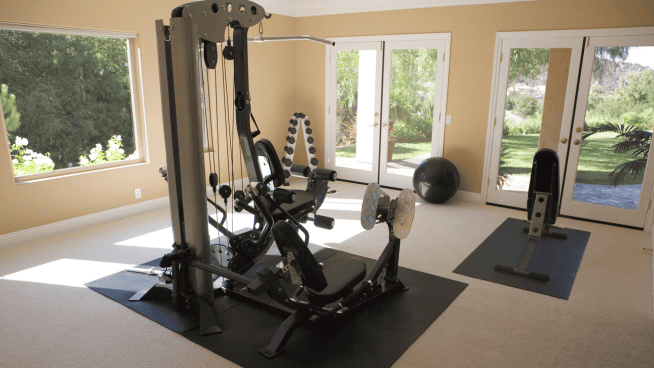Do Athletes Need Zinc Supplements?
Athletes need to pay special attention to their zinc consumption because of its critical functions in the body. This mineral is essential to maintaining good health and optimizing athletic performance. Healthy cell division and metabolism depend on having enough zinc; it aids in repairing your tissues after exercise. Zinc also plays a role in hormone production, including testosterone, essential for building lean muscle mass. You need zinc to maintain a strong heart and respiratory system and healthy cholesterol levels.
Zinc is an essential mineral found in some foods. It is a dietary supplement and added to cold remedies like lozenges because of its immune-boosting effects.
What Can Zinc Supplements Do For Athletes?
A study showed that zinc supplementation had a positive hormonal benefit following exercise. The researchers broke participants into four groups. Those who took a zinc supplement had higher serum testosterone levels following exercise than those who didn’t. This is critical for muscle growth and recovery.
In a study conducted in Turkey, 10 wrestlers who took daily doses of 3 mg zinc sulfate per kilogram of body weight averaged a 40% increase in free testosterone levels in their blood after four weeks.
The benefits of zinc supplementation go beyond testosterone. Zinc has been linked to improved immune function, and as an antioxidant and anti-inflammatory, all of which can benefit hard-training athletes. A study published in Molecular Nutrition & Food Research correlates age-related zinc deficiency with immune system dysfunction and chronic inflammation during the aging process. The strain an athlete puts on his body practicing and competing daily can lead to this deficiency, regardless of age, if the zinc shortfall is not made up through diet and/or supplementation.
Get Tested
Before you self-diagnose and start supplementing at will, determine if you’re deficient by getting a serum blood test of your zinc levels. The reference range is 10.7 – 22.9µmol/L (70-150 µg/dl). If you want to get a general sense of your levels at home, dilute a small amount of zinc sulphate in water, drink a tablespoon of it and hold it in your mouth for 10 seconds. You should experience an immediate “metallic” taste sensation. If the solution tastes like plain water, this can indicate a deficiency. Don’t eat or drink for at least an hour before the test for more accurate results.
How Much to Take?
Excessive intake can result in zinc toxicity, so before you start popping zinc tablets at random, get a baseline test through one of the above methods and adhere to the U. S. Food & Drug Administration’s daily recommended intake of 15 milligrams. A zinc overload can lead to oxidative stress, copper imbalance, and weakened immune function[4], so too much can do more harm than good.
Like anything else, think “moderation.” Focus first on adding natural sources of zinc to your diet. Look to zinc supplements only if you find your dietary intake is insufficient.
Zinc Food Sources
- Oysters – According to Healthaliciousness.com, this seafood is the richest source of zinc, with as much as 182mg per 100g serving.
- Wheat Germ – In addition to its high amounts of selenium and magnesium, wheat germ also packs a nutritional punch of zinc (as much as 17mg per 100g serving). Sprinkle it on salads or yogurt, or add it to smoothies and reap the benefits.
- Beef – Roast or ground beef yields about 10mg of zinc per 100g serving.
- Dark Chocolate – Unsweetened baking chocolate provides 9.6mg of zinc per 100g serving (most bars are 50-100 grams).
- Peanuts – Dry roasted peanuts provide 3.3mg per 100 gram serving, or 4.8mg per cup. Learn about some of the best peanut butter snacks for athletes.
As you can see, unless you have a significant deficiency to begin with, meeting your recommended daily zinc intake through dietary sources is quite possible.
Can Zinc Cut A Cold Short?
Open Forum Infectious Diseases concluded that zinc lozenges can triple the speed of recovery from cold – heartening news for those of you whose training is frequently stalled by the virus.
Article originally posted in 2013 and updated in 2021
RECOMMENDED FOR YOU
Do Athletes Need Zinc Supplements?
Athletes need to pay special attention to their zinc consumption because of its critical functions in the body. This mineral is essential to maintaining good health and optimizing athletic performance. Healthy cell division and metabolism depend on having enough zinc; it aids in repairing your tissues after exercise. Zinc also plays a role in hormone production, including testosterone, essential for building lean muscle mass. You need zinc to maintain a strong heart and respiratory system and healthy cholesterol levels.
Zinc is an essential mineral found in some foods. It is a dietary supplement and added to cold remedies like lozenges because of its immune-boosting effects.
What Can Zinc Supplements Do For Athletes?
A study showed that zinc supplementation had a positive hormonal benefit following exercise. The researchers broke participants into four groups. Those who took a zinc supplement had higher serum testosterone levels following exercise than those who didn’t. This is critical for muscle growth and recovery.
In a study conducted in Turkey, 10 wrestlers who took daily doses of 3 mg zinc sulfate per kilogram of body weight averaged a 40% increase in free testosterone levels in their blood after four weeks.
The benefits of zinc supplementation go beyond testosterone. Zinc has been linked to improved immune function, and as an antioxidant and anti-inflammatory, all of which can benefit hard-training athletes. A study published in Molecular Nutrition & Food Research correlates age-related zinc deficiency with immune system dysfunction and chronic inflammation during the aging process. The strain an athlete puts on his body practicing and competing daily can lead to this deficiency, regardless of age, if the zinc shortfall is not made up through diet and/or supplementation.
Get Tested
Before you self-diagnose and start supplementing at will, determine if you’re deficient by getting a serum blood test of your zinc levels. The reference range is 10.7 – 22.9µmol/L (70-150 µg/dl). If you want to get a general sense of your levels at home, dilute a small amount of zinc sulphate in water, drink a tablespoon of it and hold it in your mouth for 10 seconds. You should experience an immediate “metallic” taste sensation. If the solution tastes like plain water, this can indicate a deficiency. Don’t eat or drink for at least an hour before the test for more accurate results.
How Much to Take?
Excessive intake can result in zinc toxicity, so before you start popping zinc tablets at random, get a baseline test through one of the above methods and adhere to the U. S. Food & Drug Administration’s daily recommended intake of 15 milligrams. A zinc overload can lead to oxidative stress, copper imbalance, and weakened immune function[4], so too much can do more harm than good.
Like anything else, think “moderation.” Focus first on adding natural sources of zinc to your diet. Look to zinc supplements only if you find your dietary intake is insufficient.
Zinc Food Sources
- Oysters – According to Healthaliciousness.com, this seafood is the richest source of zinc, with as much as 182mg per 100g serving.
- Wheat Germ – In addition to its high amounts of selenium and magnesium, wheat germ also packs a nutritional punch of zinc (as much as 17mg per 100g serving). Sprinkle it on salads or yogurt, or add it to smoothies and reap the benefits.
- Beef – Roast or ground beef yields about 10mg of zinc per 100g serving.
- Dark Chocolate – Unsweetened baking chocolate provides 9.6mg of zinc per 100g serving (most bars are 50-100 grams).
- Peanuts – Dry roasted peanuts provide 3.3mg per 100 gram serving, or 4.8mg per cup. Learn about some of the best peanut butter snacks for athletes.
As you can see, unless you have a significant deficiency to begin with, meeting your recommended daily zinc intake through dietary sources is quite possible.
Can Zinc Cut A Cold Short?
Open Forum Infectious Diseases concluded that zinc lozenges can triple the speed of recovery from cold – heartening news for those of you whose training is frequently stalled by the virus.
Article originally posted in 2013 and updated in 2021










